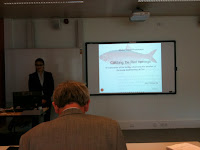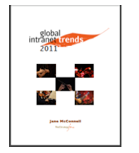Thoughts about Quora
Of course you've heard of Quora . Lots of posts have been written about Quora. I've been using it for some time now . I'm not a heavy user; I dip into it every now and then. I think it's interesting. It taps into the power of asking questions . I am surprised though that Quora took off so quickly. Is the world really waiting for a new and separate platform specifically designed to ask and answer questions? For now it seems the world is. For the long-term I don't think Quora will stay around in this form. As I tweeted I think Quora will be acquired by and integrated into Twitter (like in Yammer ). Or Twitter will add Questions functionality (like Yammer). Why? Because knowledge workers are extremely efficient. They don't want to have the tools spread out everywhere and have to look into all those tools one by one. Furthermore, we could already ask each other questions on Twitter. Tweeps would just mark these tweets with a hashtag like #question, #justasking o...





